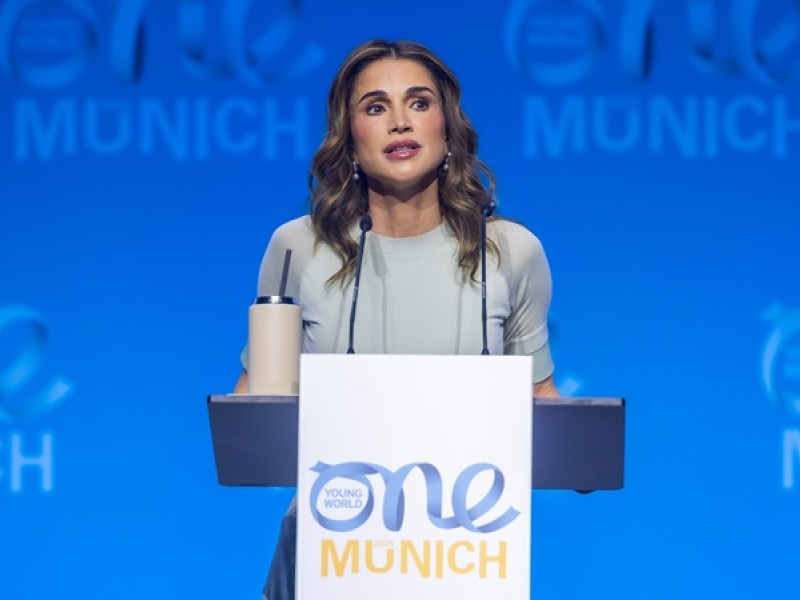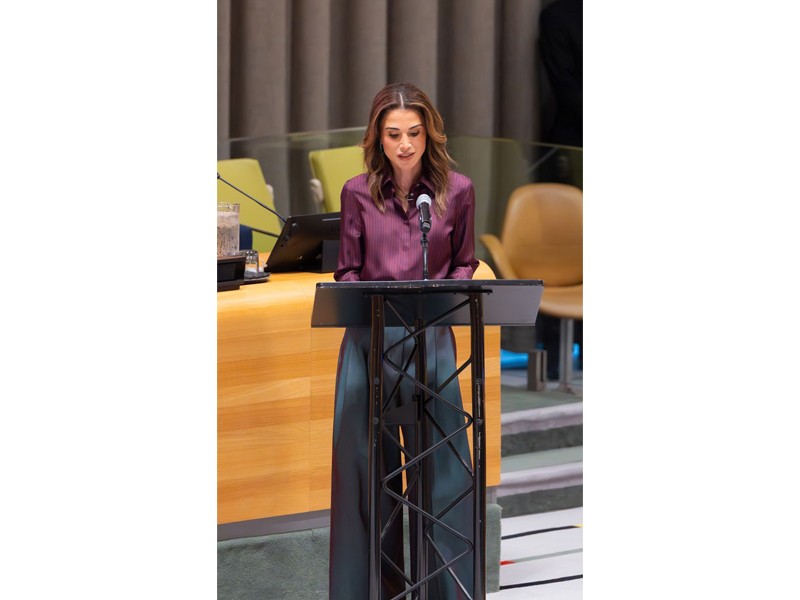Queen Rania's Press Statement at Kutupalong Refugee Camp - Cox's Bazar, Bangladesh
Thank you all for being here.
Since August, we have all witnessed the shocking escalation of violence against the Muslim Rohingya minority in Myanmar.
And as a result, over 600,000 have crossed the border into Bangladesh, sparking what is possibly the fastest growing humanitarian emergency the world has seen.
With no respect or regard for the principles of humanitarian and international law, the discrimination against and the persecution of the Rohingya minority has continued unabated, in full view of the world.
Just walking around the camp today, the residents have spoken to me of unimaginable acts of violence that they have witnessed… Children have been orphaned, women brutalized, family members butchered, villages burned to the ground.
Before coming here, I had braced myself to witness some desperate conditions, but the stories I heard today were heartbreaking and harrowing.
I’ve heard of systematic rape of young girls, who were trapped in schools and raped by soldiers. I’ve heard of babies being kicked around like footballs and stomped on. I’ve heard family members telling me how they’ve seen their own parents killed, right before their eyes.
This is something that is unacceptable. And although these people have reached safety here, their plight is far from over. Over 95% do not have access to safe water, over three quarters are not getting enough food, and, of course, health services are stretched to the limit.
60% of the refugees are children, and that is partly because males above the age of 12 are systematically being killed. And, according to what I heard from UNICEF, 14,000 of these children are at risk of dying from malnutrition.
Now I know that the humanitarian organizations here are doing amazing work. Organizations like the UNHCR, of course, IOM, UNICEF, and IRC are doing incredible efforts and they are working so hard under some very difficult conditions to try to alleviate the suffering, so I’d really like to thank them.
And, equally, I would like to thank the government and the people of Bangladesh, for the enormous compassion, kindness, and generosity that they have shown, even though they are having difficulty themselves.
Having to show compassion is coming at a high price to the host community and to the people of Bangladesh. They are sharing what little they have and that generosity really needs to be commended. So, I really thank the people of Bangladesh.
But it’s very clear to everybody that there’s an urgent need to scale-up the humanitarian response. So I urge the donor community, who are gathering today in Geneva, to respond effectively, quickly, and generously to this crisis.
It is unforgivable that this crisis is unfolding on the world stage to a largely indifferent audience. The world seems to be silent to what many are acknowledging now as an ethnic cleansing of the Rohingya Muslims.
One has to ask, why is the plight of this Muslim minority group being ignored? Why has this systematic persecution been allowed to play out for so long?
Unfortunately, what we’ve been seeing as a result of some of the terrible acts of a very small minority on the fringes of Islam – who we, the majority, even think are on the outside of Islam – is a very strong, anti-Muslim sentiment and a negative stereotype of Muslims, to the point where many around the world are unable to see Muslims as victims.
It leads one to wonder, if the tables were turned, and these acts of violence were committed by Muslims, if the world’s response would have been as muted as the response that we are seeing here today.
I urge the UN and the international community to do all that they can to stop the suffering and the violence that is being committed against the Rohingya Muslims, not because it is our job to do so, but because that is what justice demands.
Again, thank you all for your efforts, and I hope that, through dialogue and reconciliation, we can start to see the end of the suffering of these people.
Featured
Queen Rania's official website
This website does not support old browsers. To view this website, Please upgrade your browser to IE 9 or greater
Your browser is out of date. It has known security flaws and may not display all features of this and other websites. Learn how to update your browser



